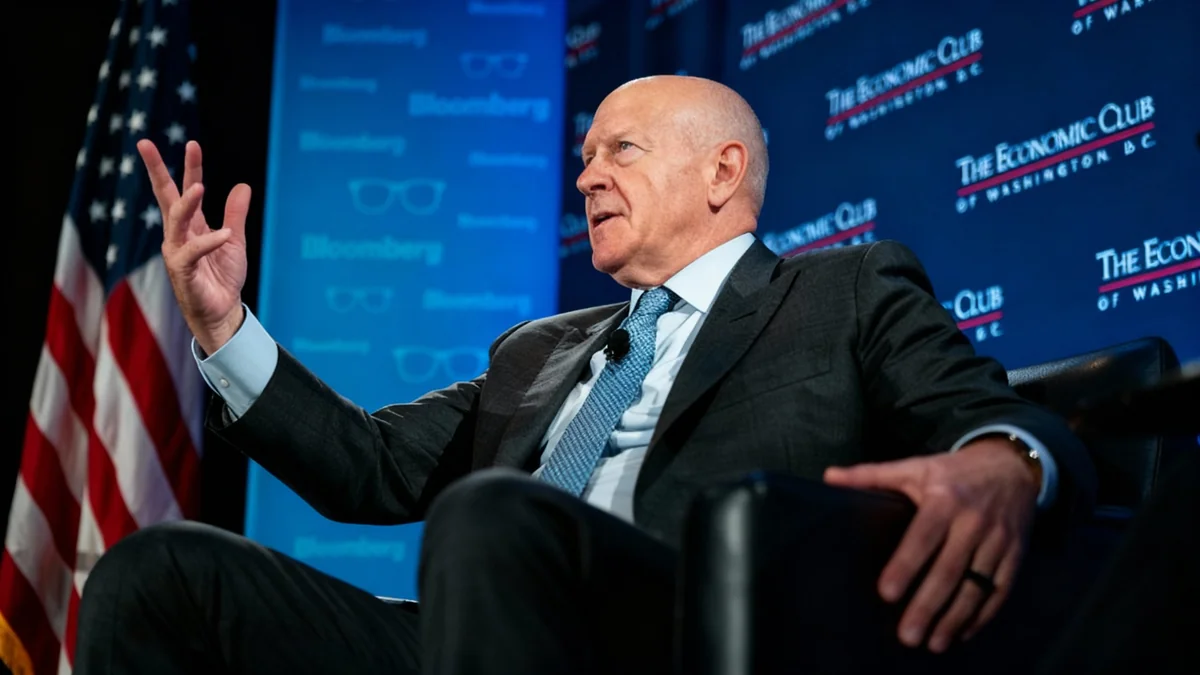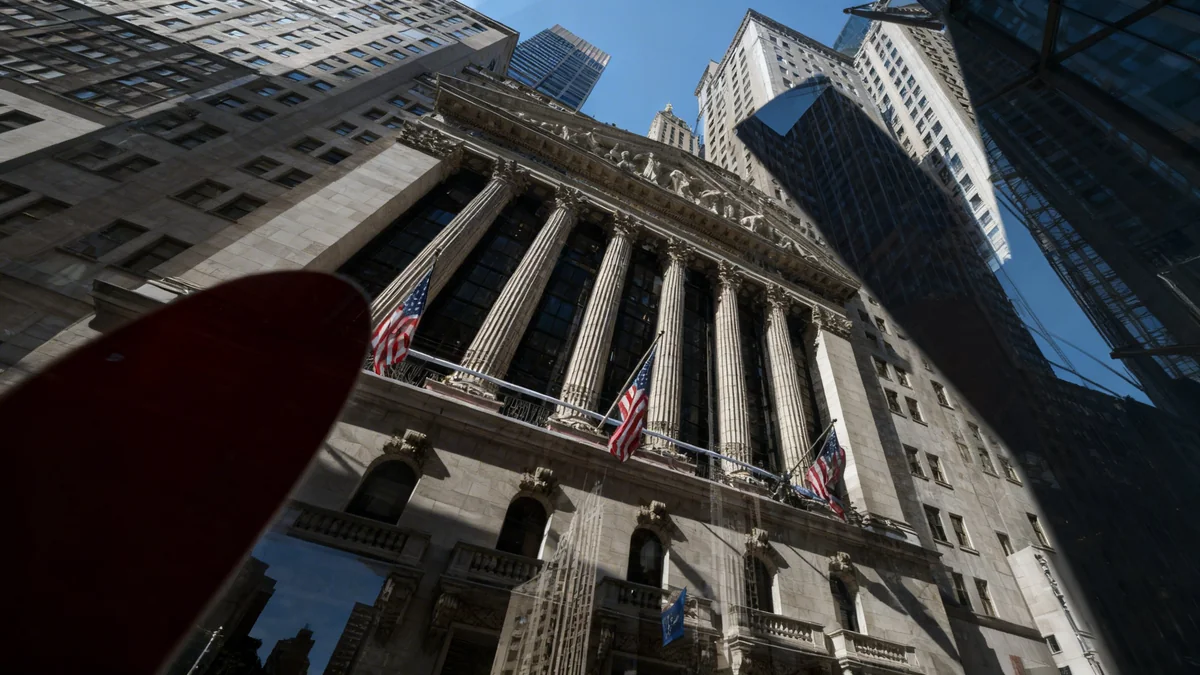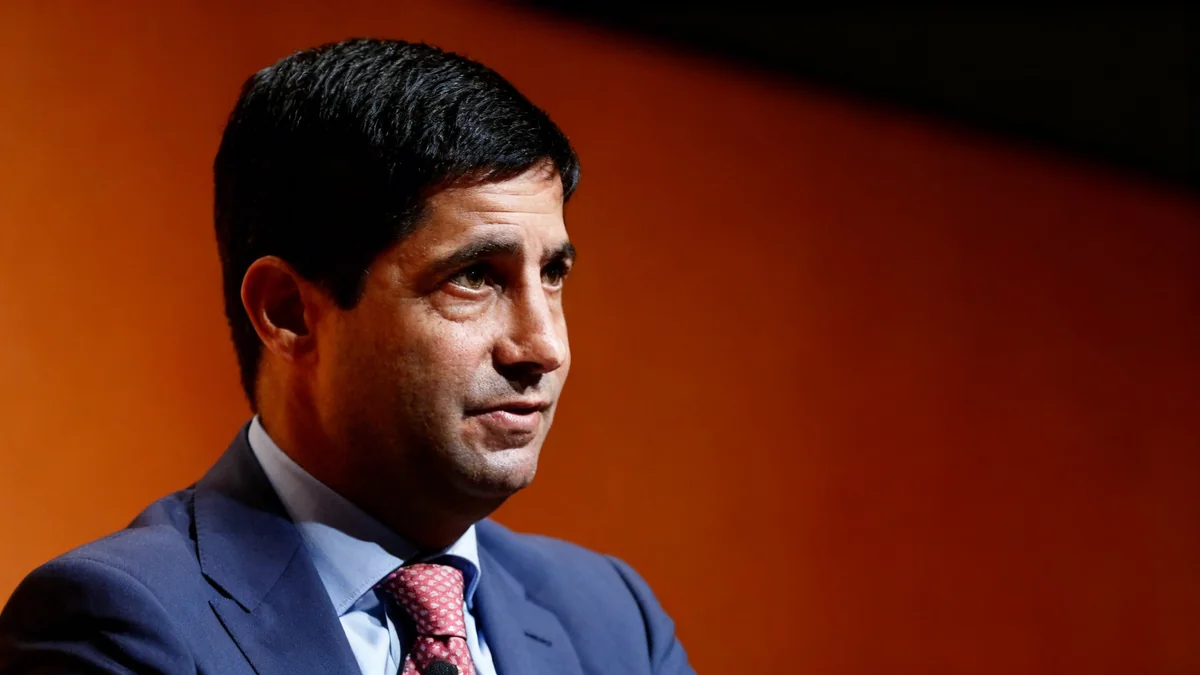The rapid integration of artificial intelligence into corporate America is fueling a debate about the future of white-collar employment. While recent layoffs at major technology firms have raised alarms, some financial leaders, including Goldman Sachs CEO David Solomon, suggest a long-term view, comparing the current disruption to previous industrial revolutions.
Solomon believes that while short-term job displacement is likely, the American economy has a proven history of adapting to transformative technologies. This perspective, however, contrasts with the immediate reality faced by thousands of workers and the warnings from some AI industry insiders about the unprecedented speed of this technological shift.
Key Takeaways
- Goldman Sachs CEO David Solomon compares AI's impact to the steam engine, predicting the economy will adapt over time.
- Companies like Meta, YouTube, and Chegg have recently announced layoffs or restructuring efforts linked to AI integration.
- A Goldman Sachs survey indicates that 37% of clients are already using AI, with adoption expected to reach 74% within three years.
- Experts are divided, with some predicting modest job shifts while others warn of significant unemployment in entry-level white-collar roles.
A Tale of Two Revolutions
Speaking from Washington, Goldman Sachs CEO David Solomon offered a historical perspective on the growing concerns surrounding AI and employment. He drew a parallel between the current technological wave and the invention of the steam engine in the late 1700s, a development that ignited the first industrial revolution.
Solomon acknowledged the inevitable disruption but expressed confidence in the economy's resilience. "I’m a big believer that our economy is very nimble, very flexible," he stated. "And when you look at the technology that has flooded over hundreds of years into our society, we adapt. We find new businesses. We find new jobs. I don’t believe it will be different this time."
This long-term optimism, however, is tempered by the unique nature of the current transition. The speed at which generative AI is being developed and adopted by businesses is without historical precedent. This rapid pace could make the adjustment period more challenging than in the past.
"The pace of adoption of this technology is going a little bit faster. As businesses wrestle with deploying the technology and the automation, the short-term disruption might be a little bit higher," Solomon conceded.
Corporate America's Rapid AI Adoption
The fingerprints of artificial intelligence are increasingly visible in corporate restructuring plans. Several major technology companies have recently made changes to their workforce, citing the need to become more agile and AI-focused.
Meta recently reduced its AI team by 600 roles in an effort to move more nimbly. Similarly, YouTube has initiated voluntary buyouts for some U.S. employees as part of a restructuring centered on AI. While Amazon CEO Andy Jassy noted recent layoffs were not primarily AI-driven, he has acknowledged that generative AI will likely shrink the company's corporate workforce in the future.
The online education company Chegg provides a stark example of AI's dual impact. The company is facing reduced demand for its services due to the rise of powerful tools like ChatGPT. In response, Chegg is investing heavily in its own AI capabilities and announced it will cut nearly half of its workforce to operate more leanly in this new environment.
AI Adoption by the Numbers
A recent survey of Goldman Sachs investment bankers revealed telling statistics about AI in the corporate world:
- 37% of clients are currently using AI for regular production.
- This figure is expected to rise to 50% next year.
- Within three years, adoption is projected to reach 74%.
Quantifying the Impact on Jobs
Measuring the precise number of jobs lost to AI is a complex task. According to the coaching firm Challenger, Gray & Christmas, AI was explicitly cited as the reason for 17,375 layoff announcements through September of this year. This represents less than 2% of total layoffs.
However, the firm suggests this number likely undercounts the true impact. An additional 20,219 job cuts were attributed to unspecified "technological updates," a category that could conceal AI-related downsizing.
Federal Reserve Chairman Jerome Powell has also taken note of the trend. During a recent press conference, he acknowledged that a "significant number of companies" are either conducting layoffs or slowing hiring partly because of AI. "We’re watching that very carefully…It could absolutely have implications for job creation," Powell said.
Diverging Predictions for the Future
The long-term outlook for white-collar jobs remains a subject of intense debate. While Solomon predicts that jobs lost in some areas will be replaced in others, some AI leaders offer a more cautious view. Anthropic CEO Dario Amodei has warned that AI could potentially eliminate half of all entry-level white-collar positions, possibly pushing the unemployment rate as high as 20% in the near future. "We can’t just sleepwalk into it," Amodei stated in a previous interview.
The View from Investment Banking
Internal analysis from Goldman Sachs provides further insight into corporate plans. A report based on a survey of over 100 of the bank's investment bankers found that only 11% of U.S. companies are "actively reducing headcount due to AI" at present.
However, this figure jumps to 31% for companies in the tech, media, and telecom sectors. Looking ahead, the bankers anticipate that AI will lead to modest headcount reductions of about 4% over the next year. That number is projected to climb to 11% over the next three years, with customer service roles expected to be the most affected.
Jan Hatzius, Goldman's chief economist, wrote that these findings support the bank's view that AI will have a "transformative impact on the labor market and economy." He also noted that the rapid adoption rate suggests these impacts could arrive sooner than previously expected.
As for the investment landscape, Solomon acknowledged the immense enthusiasm for AI technology but also cautioned about potential market volatility. He described a scenario where demand for AI services might not meet the currently high expectations, leading to a correction in valuations. "The technology is exciting," Solomon said. "But there will be bumps along the way, too."





